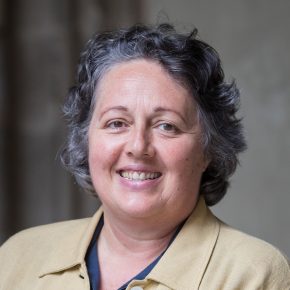 Masterclass with Professor Rosi Braidotti
Masterclass with Professor Rosi Braidotti
Date: November 28 and 30, 2017
Time: November 28: 9.30 – 12.45 and November 30: 13:15 – 17:00
Location: Utrecht University
Organizer: Netherlands Research School of Gender Studies (NOG)
This intensive NOG masterclass offers an introduction to contemporary critical debates on the construction of (nomadic) subjects. Cultural diversity, global migration, digital ‘second life’, genetically modified food, advanced prosthetics, robotics and reproductive technologies are familiar facets of our global and technologically mediated societies. How do they affect the self-understanding, the cultural representations and the social and political participations of contemporary subjects? The emphasis on nomadic theory aims to outline a project of sustainable modern subjectivity and to offer an original and powerful alternative for scholars working in cultural and social criticism.
Arranged thematically, the masterclass explore the different aspects of critical theory debates about contemporary subjectivity: multi-cultural and post-secular citizenship, gender and racial differences, embodiment and materialism, issues linked to globalization, network societies and techno-science. The class stresses the productive potential of these features of our culture and it promotes the politics of affirmation, which emphasize the importance of affects and the imagination. It establishes a theoretical framework that combines critique and creation, granting a major role to the arts and new media.
By inscribing nomadic subjects in the content of contemporary culture, the Masterclass also assesses the extent to which intense technological mediation and global networks have blurred the traditional distinction between the human and its others, both human and non-human others, thus exposing the non-naturalistic structure of the human subject. The class analyzes the escalating effects of the posthuman condition in the Anthropocene, which encompass new relationships to animals and other species and ultimately questions the sustainability of our planet as a whole. After delving into the inhumane and structurally unjust aspects of our culture by looking at new wars and contemporary conflicts, the class concludes by outlining new forms of cosmopolitan nomadic citizenship, rooted in the posthuman condition. Rather than perceiving the posthuman situation as a loss of cognitive and moral self-mastery, this Masterclass argues that it helps us make sense of our flexible nomadic identities.
The challenge for critical theory today consists in seizing the opportunities for new social bonding and community building, while pursuing sustainability and empowerment.
A short video clip on Braidotti’s nomadic theory can be found here: http://www.youtube.com/watch?v=-C5fhenwqoY
Biography
Rosi Braidotti was born in Italy, raised in Australia, graduated from the Sorbonne in Paris, and became the founding professor of the women’s studies program in Utrecht at 33. She is currently University Professor in the Humanities at Utrecht University and the founding Director of its Centre for Humanities. Rosi Braidotti’s research and writing engages feminist philosophy and cultural studies. She is especially interested in poststructuralism and critical theory as well as epistemology and Deleuze studies. Her books include, Transpositions: On Nomadic Ethics (Polity Press: Cambridge, 2006); Metamorphoses: Towards a Materialist Theory of Becoming (Polity Press: Cambridge, 2002); and Nomadic Subjects: Embodiment and Difference in Contemporary Feminist Theory (Columbia University Press: New York, 1994 and 2011). Currently she is working on the concept of the posthuman and the notion of ‘life’. She also serves as an advisor to the journals Signs, Differences and Theory and Culture & Society. In 2007 she was awarded an Honorary Degree in philosophy by the University of Helsinki.
Registration:
PhD and RMA students (max 20) are invited to submit a short motivation before October 30, 2017 to nog@uu.nl
After acceptance you’ll receive the reading material. You will then also be asked to submit 2 questions related to the readings of the masterclass and in connection to your own research topic/interest.
Students can receive 1 ECTS for preparing the reading material and active participation (no paper) or 2,5 EC in total if you also write an essay. Please note if you wish to receive credit with your registration.

